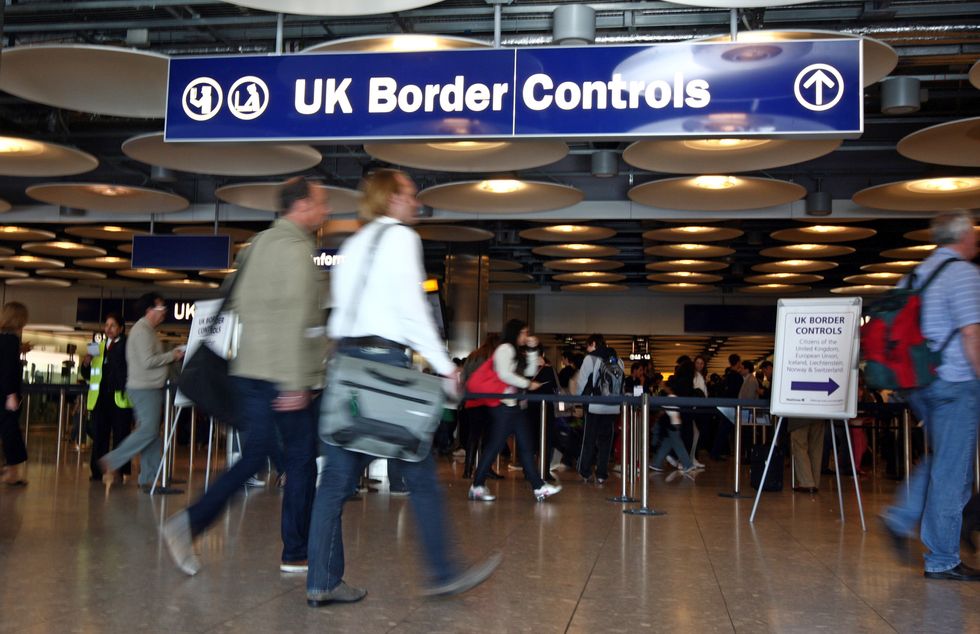Low skilled immigration costing UK taxpayers more than £150,000 EACH finds watchdog

Sir Keir Starmer pledged to end 'sky high' migration figures
|PA

Sir Keir Starmer has pledged to end 'sky high' migration figures
Don't Miss
Most Read
Latest
Low-paid migrant workers in the UK are costing taxpayers £151,000 each by retirement age, new figures from the Office for Budget Responsibility (OBR) has revealed.
The fiscal watchdog revealed that low-paid foreign workers become a net drain on public finances from the moment they arrive in Britain.
The OBR's analysis shows that migrants earning half the average wage place greater demands on public services, such as the NHS, compared to their tax contributions.
The fiscal impact continues to grow over time, with the cost to the public purse potentially reaching £500,000 if a migrant lives to 80, and over £1million if they reach 100-years-old.
 Sir Keir Starmer pledged to end 'sky high' migration figures | PA
Sir Keir Starmer pledged to end 'sky high' migration figures | PAThese figures starkly contrast with the average British-born worker, who boosts public finances by £280,000 by age 66, even after accounting for education and health spending.
While low-paid migrants are shown to be a fiscal burden, the OBR's report highlights the benefits of attracting highly-paid migrants to the UK.
Workers earning 30 per cent more than the average salary could contribute a net £925,000 to the Treasury by state pension age.
The OBR notes that these high-earners would "still be a net benefit to the public finances even if they lived to 100".
David Miles, who sits on the OBR's Budget Responsibility Committee, said: "I think the characteristics of migrants, in terms of their earnings and how long they stay, are as important, if not more important, than the absolute numbers."

People at Border Control in Terminal Five of London's Heathrow Airport
| PA IMAGESThe analysis also revealed that the average migrant worker pays more in tax than they receive in public services throughout their lives compared to British-born workers, primarily due to not being educated in the UK.
The Government has recently taken steps to address concerns over low-skilled migration.
Sir Keir Starmer has promised to cut "sky-high" migration figures, though he has not set a specific target.
Earlier this year, the previous Conservative Government overhauled the UK's visa system, increasing the minimum salary requirement for a Skilled Worker visa from £26,200 to £38,700.
The Tories also banned social care workers from bringing dependents on their visas.
Starmer has since warned that employers have become "too reliant" on overseas workers and should prioritise recruiting British workers.
Home Secretary Yvette Cooper has expressed support for "some further restrictions on visas" introduced by the Government.
 Yvette Cooper | PA
Yvette Cooper | PAThe OBR's analysis underscores the significant impact of migrant characteristics on Britain's long-term debt trajectory.
In a scenario where all migrants earn 50 per cent less than average, the OBR projects that national debt would rise to 350 per cent of GDP by 2074, compared to 275 per cent in the baseline scenario.
However, if all migrants earned 30 per cent more than the domestic population, debt would only rise to 225 per cent of GDP over the same period.
Miles added: "The characteristic of migrants, perhaps not surprisingly, matters a great deal."
The Imperial College professor has previously urged politicians to focus on increasing Britain's domestic workforce participation rather than relying on immigration to address Britain's debt challenges.










